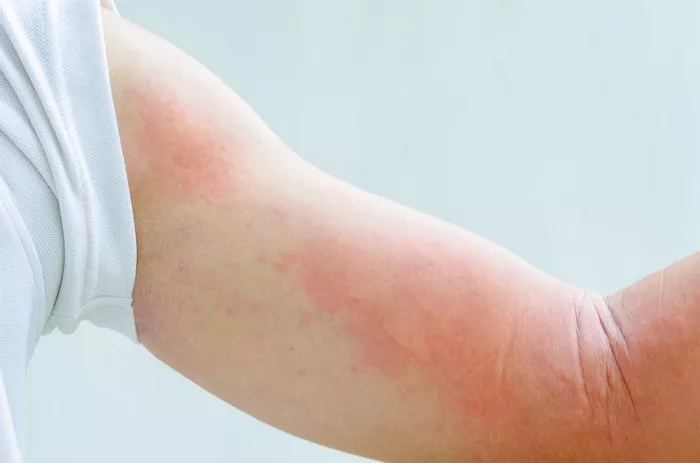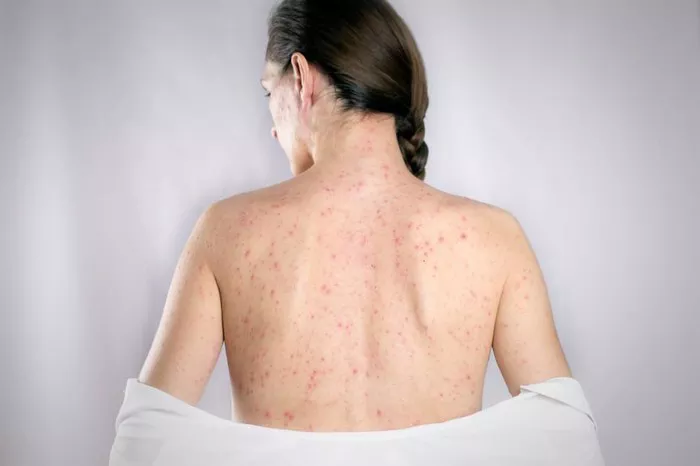Vitiligo is a chronic skin condition characterized by the loss of pigmentation, resulting in white patches on the skin. This condition can be unpredictable, with the rate and extent of spreading varying significantly from person to person. Understanding what causes vitiligo to spread rapidly is crucial for both patients and healthcare providers to manage and potentially mitigate its progression. This article delves into the various factors that can contribute to the accelerated spread of vitiligo, providing a comprehensive overview of the condition’s dynamics.
Genetic Factors
Family History
Genetics play a significant role in the development and progression of vitiligo. A family history of vitiligo or other autoimmune diseases can increase the likelihood of the condition spreading rapidly. Specific genes associated with immune system regulation, such as NLRP1 and PTPN22, have been linked to vitiligo, suggesting a hereditary predisposition. Individuals with a genetic predisposition may experience a more aggressive form of the condition, with patches spreading more quickly than in those without such a history.
Gene Mutations
Certain genetic mutations can also contribute to the rapid spread of vitiligo. Mutations in genes responsible for melanocyte function and survival can lead to a more severe and widespread loss of pigmentation. For example, mutations in the TYR, SLC45A2, and OCA2 genes, which are involved in melanin production, can exacerbate the condition and lead to faster spreading.
Autoimmune Response
Immune System Dysregulation
Vitiligo is widely considered an autoimmune disorder, where the body’s immune system mistakenly attacks its own melanocytes, the cells responsible for producing pigment in the skin. Dysregulation of the immune system can lead to a more aggressive attack on melanocytes, causing the white patches to spread more quickly. Factors that can trigger or exacerbate immune system dysregulation include infections, vaccinations, and other autoimmune diseases.
Cytokines and Inflammation
Cytokines are signaling molecules that regulate immune responses. In individuals with vitiligo, certain cytokines, such as interleukin-1 (IL-1) and tumor necrosis factor-alpha (TNF-α), can be overproduced, leading to increased inflammation and accelerated destruction of melanocytes. This heightened inflammatory response can contribute to the rapid spread of vitiligo.
Environmental Factors
Sun Exposure
Excessive sun exposure can significantly impact the spread of vitiligo. Ultraviolet (UV) radiation from the sun can damage melanocytes and trigger an inflammatory response in the skin. This can lead to the formation of new vitiligo patches and the expansion of existing ones. While moderate sun exposure can stimulate melanin production, excessive exposure can have the opposite effect, exacerbating the condition.
Chemical Exposure
Exposure to certain chemicals can also accelerate the spread of vitiligo. Phenolic compounds, such as those found in hair dyes, rubber, and certain industrial chemicals, can cause damage to melanocytes and trigger an immune response. Repeated or prolonged exposure to these chemicals can lead to more rapid progression of vitiligo.
Psychological Factors
Stress
Stress is a well-known trigger for many autoimmune diseases, including vitiligo. Chronic stress can lead to the release of stress hormones like cortisol, which can suppress immune function and increase inflammation. This can create an environment conducive to the rapid spread of vitiligo. Additionally, the psychological impact of living with vitiligo can further exacerbate stress levels, creating a vicious cycle that accelerates the condition’s progression.
Trauma
Physical trauma to the skin, such as cuts, scrapes, or burns, can trigger the spread of vitiligo in a phenomenon known as the Koebner response. This response occurs when new vitiligo patches develop at the sites of skin injury. Even minor trauma can lead to the appearance of new lesions, contributing to the rapid spread of the condition.
Hormonal Factors
Thyroid Dysfunction
Thyroid dysfunction, particularly autoimmune thyroid diseases like Hashimoto’s thyroiditis and Graves’ disease, is commonly associated with vitiligo. Thyroid hormones play a crucial role in regulating various metabolic processes in the body, including skin pigmentation. Imbalances in thyroid hormones can exacerbate the destruction of melanocytes, leading to a more rapid spread of vitiligo.
SEE ALSO: What Causes Vitiligo to Get Worse
Adrenal Insufficiency
Adrenal insufficiency, a condition where the adrenal glands do not produce enough hormones, can also impact the spread of vitiligo. Cortisol, a hormone produced by the adrenal glands, has anti-inflammatory properties that help regulate the immune response. Insufficient cortisol levels can lead to increased inflammation and immune system activity, contributing to the rapid progression of vitiligo.
Nutritional Factors
Vitamin Deficiencies
Deficiencies in certain vitamins and minerals can impact the spread of vitiligo. Vitamins D, B12, and folic acid are particularly important for maintaining healthy skin and immune function. A deficiency in these vitamins can weaken the skin’s defenses and contribute to the accelerated destruction of melanocytes. Ensuring adequate intake of these nutrients through diet or supplementation can help slow the progression of vitiligo.
Antioxidant Levels
Low levels of antioxidants in the body can also contribute to the rapid spread of vitiligo. Antioxidants help protect cells from oxidative stress and damage caused by free radicals. In individuals with vitiligo, lower levels of antioxidants can make melanocytes more susceptible to damage and destruction. Increasing antioxidant intake through diet or supplements can help mitigate this risk and slow the condition’s progression.
Treatment Factors
Ineffective Treatment
The effectiveness of vitiligo treatment can significantly impact the rate at which the condition spreads. Ineffective or delayed treatment can allow the condition to progress unchecked, leading to more rapid spreading of white patches. Common treatments for vitiligo include topical corticosteroids, calcineurin inhibitors, and phototherapy. Early and consistent treatment is crucial for managing the condition and slowing its spread.
Discontinuation of Treatment
Discontinuing treatment prematurely can also lead to the rapid spread of vitiligo. Many treatments for vitiligo require long-term commitment to be effective. Abruptly stopping treatment can lead to a rebound effect, where the condition worsens and spreads more quickly than before. It is essential for individuals with vitiligo to follow their treatment plan as prescribed by their healthcare provider to maintain control over the condition.
Conclusion
The spread of vitiligo can be influenced by a multitude of factors, including genetic predisposition, immune system dysregulation, environmental exposures, psychological stress, hormonal imbalances, nutritional deficiencies, and treatment effectiveness. Understanding these factors is crucial for developing effective strategies to manage and potentially slow the progression of the condition. Early diagnosis, consistent treatment, and addressing underlying triggers can help individuals with vitiligo maintain better control over their condition and improve their quality of life.
Related Topics:


























